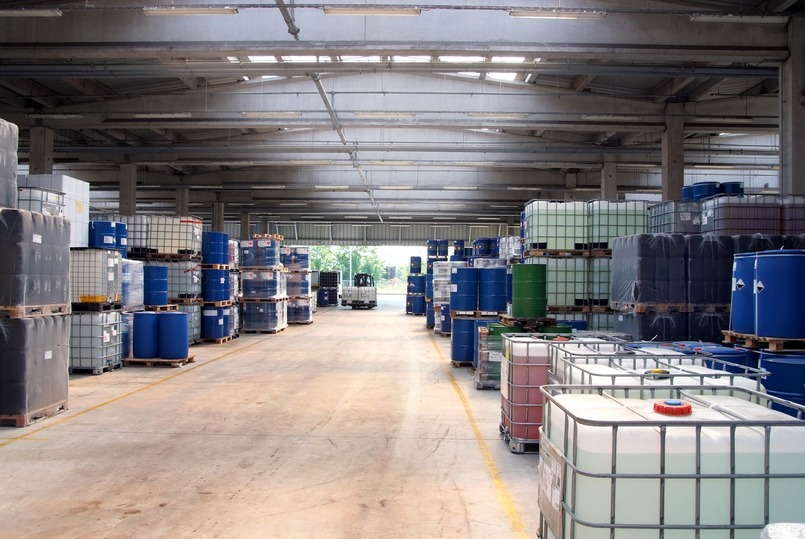In the course of business activities, there are often cases where the Buyer encounters the fact of receiving a defective Product. At the same time, significant defects of a Product may be found by the Buyer after its acceptance. In this regard, an important question arises as to how the fact of a defective Product should be formalized and what claims the Buyer has the right to raise to the Supplier of such Product. We will discuss this further.
First Legal – experts in economic disputes, will embark on the path of protection of your violated, unrecognized or contested rights and legitimate interests in the court of economic jurisdiction in any category of economic disputes.
If the Buyer is a business entity, then he is obviously aware of the obligation to enter into a contract for the supply of Products (hereinafter referred to as a contract). Usually, referring to the form of such a contract, we mean signing by the Parties of a single document, with the terms and conditions of the Contract agreed by the Parties, in particular, the conditions of acceptance of the Products in terms of quality and quantity, drafting of a defect report, penalties and the like. In practice, however, there are often cases where the Buyer establishes business relationships with his counterparty by exchanging telephone calls and/or emails. Thus, while in the case of conclusion of a single written document the Buyer’s actions during the receipt and documenting of the defective Products are clear, in the case of conclusion of a Contract in a simplified way, as stated above, the Parties have questions to each other.
Article 181 of the Commercial Code of Ukraine (hereinafter referred to as the CC of Ukraine) allows the conclusion of a contract by exchanging letters, telephone messages, and also by confirming acceptance of the order for execution. But it should be borne in mind that the recognition of an economic contract as concluded always requires the existence of essential conditions, which are the conditions on the subject of the contract, conditions that are defined by law as essential or necessary for contracts of this type, as well as all those conditions in respect of which by submission of an application at least by one of the parties an agreement must be reached.
In most cases, when concluding a Contract in a simplified manner, the Parties do not agree on the quality requirements to the Products with reference to the relevant standards, specifications, etc., as well as on the procedure for acceptance of the Products, appropriate penalties in case of a breach of such agreements.
Therefore, according to part 3 of Art. 268 of the CC of Ukraine, in the absence of conditions in the contract in respect of quality of products, the latter shall be determined in accordance with the purpose of the contract or the usual level of quality of the subject of the contract or general quality criteria. Therefore, if the Buyer informed the Supplier, when concluding a contract (exchanging letters or telephone messages), of the specific purpose of the purchase of the Products, the Supplier shall deliver the Products suitable for use for this purpose (Judgement of the Commercial Court of Kharkiv region dated 06.09.2019 in Case No. 922/2109/19).
In order to understand the following actions of the Buyer, it is necessary to refer to the Instruction on the procedure of acceptance of industrial, technical and consumer goods in terms of quality, approved by Decree of the State Arbitration of the USSR dated 25.04.1966 No. П-7 (hereinafter – Instruction No. П-7) which is currently in effect.
Instruction No. П-7 specifies that its requirements can be applied in all cases, unless the terms of the contract provide for another procedure of acceptance of products. Therefore, in case the Contract (during the exchange of letters or telephone messages) contains no relevant conditions regarding the procedure of acceptance of the Products in terms of quality, the provisions of Instruction No. П-7 shall apply to the legal relations between the Parties to such a Contract.
Thus, it is necessary to distinguish between two events. The first is the terms and procedure of acceptance of the Products. The second is the terms and procedure for drawing up the Report on hidden defects if the same are detected at the time of acceptance of the Products.
Therefore, in the absence of other conditions agreed upon by the Parties in the Contract, Instruction No. П-7 allows the acceptance of the Products in terms of quality, subject to long-distance delivery, within 20 days (for perishable products – not later than 24 hours) from the date of receipt thereof by the consignee from the carrier (supplier); when delivered within one city – within no more than 10 days.
In case the quality of the Products received does not meet the requirements of the standards, specifications (see part 3 of Article 268 of the CC of Ukraine), or the requirements of the samples of such Products provided by the Buyer when placing an order, the Buyer shall suspend further acceptance of the Products and draw up a Report specifying the quantity of the Products inspected and the nature of the defects found during such acceptance.
In case when authorized persons of both Parties are present at the time of acceptance of the Products, the order of their actions shall be as follows: The Buyer shall initiate the drawing up of the Defect Report, execute it, the Seller shall approve the contents of the Report by the relevant signature, or disapprove providing substantiation of the same, and the Parties shall agree on the conditions of elimination of the defects found during the acceptance of the Products.
However, there are cases where the Buyer receives the Products from the Supplier (or Carrier), performs a surface inspection of the Products, signs the delivery note (and/or the consignment note), but subsequently, the Buyer finds the fact of a deficiency (non-compliance with quality requirements) of the Products received.
Instruction No. П-7 clarifies that hidden defects mean deficiencies that were not detected during normal inspection for this type of product, and are only identified during processing, preparation for installation, installation, use and storage of products.
In such case, the Parties shall, within 5 days, draw up a Report on Hidden Defects (hereinafter – the Report), but not later than within 4 (four) months from the date of receipt of the Products into the warehouse (unless otherwise agreed by the Parties). If the Product has a warranty period, then the Report shall be drawn up within 5 (five) days from the date of detection of such defects, but within the warranty period.
Note that the form of the Report to be drawn up by the Parties is not approved by any regulation, but Instruction No. П-7 provides for the following requirements regarding the presence of authorized persons at the time of drawing up the Report:
- In case of delivery of the Products, in a batch of which hidden defects are found, within one city – the presence of an authorized representative of the Supplier is obligatory.
- In case of delivery of the Products between different cities, participation of the Supplier’s representative is obligatory only if there is a corresponding clause in the contract. Otherwise, one of the following persons must be present when drawing up the Report, instead of the authorized person of the Supplier:
- either a representative of the relevant industry quality inspectorate (when it comes to non-conformity of quality of the products);
- or an expert of the Bureau of Commodity Expertise (when it comes to certifying the fact that the quality of goods is not in conformity). At the same time, in the absence or refusal from participation of representatives of the inspectorate or expert at the location of the Buyer, the inspection shall be conducted with the participation of the competent representative of another enterprise, or with the participation of a member of the public, or subject to the Supplier’s consent to unilateral acceptance of products – unilaterally.
It is worth noting that the courts are rather meticulous about the competence of the persons involved in the verification of the quality of the Products for drawing up the Report. Thus, the courts pay attention to the mandatory availability of the relevant work experience or education of representatives of parties to determine the quality of products to be tested. Also reasonable is the reservation of the courts that persons must be employed, since signing of the Report by an unemployed person will raise doubts as to the actual participation of such a person on that day at the time of drawing up of the Report.
Useful is a reservation on proper execution of withdrawal of defective products by the authorized representatives of the Parties as a sample from the received batch of the Products for the purpose of forwarding it for merchandise examination. Everyone knows the principle “Everything that is not put on paper – does not exist”? Therefore, in order to avoid questions from the Supplier regarding possible substitution by the Buyer of a defective sample of the Products for the further process of restoration of the rights of the Buyer, it is imperative to specify in the Report the process of withdrawal of such sample: the method of withdrawal, the quantitative and qualitative characteristics of the sample to be removed, its external state, the method of packaging and marking, and the like.
Finally, let us consider the Buyer’s actions after the drawing up and, accordingly, signing of the Report by the above persons.
Together with the evidence of visual certification of the fact of receipt of the defective Products (photos, video results), a copy of the consignment note (if the Products were delivered by the Carrier), a Report signed by all authorized representatives, the Buyer shall submit the claim to the Supplier. It is worth noting that the proper way of delivery of this package of documents should be the delivery by certified mail (or registered mail with a return receipt requested) to the Supplier’s mail address, or delivery by courier. In addition, documents confirming the powers of the authorized representatives who participated in the drawing up of the Report should also be added to the package of documents.
The Buyer’s claim may contain one of the following requirements, with an obligatory indication of its expiration date:
- To eliminate the defects found (if such defects are capable of being eliminated) or to replace the Products (depending on the type of Products);
- To compensate the costs of elimination of the defects found (if they were eliminated using the resources and at the expense of the Buyer);
- To recalculate the paid value of the Products towards reduction, in case of receipt of the delivered Products which do not meet the quality requirements to such Products;
- To reject the Products received and to claim for refund of the funds paid.
In the absence of a proper response of the Supplier to the claim received by it, the Buyer shall have the right to initiate legal proceedings to contest the Supplier’s misconduct and inaction. At the same time, it should be recalled that according to the Commercial Procedure Code of Ukraine, claims arising out of the delivery of Products of inadequate quality can be brought within six months from the date of the buyer’s establishment in a proper manner of the defects of the Products delivered to it.
Legal support of business in Ukraine
According to the analysis of the case law, the Buyer’s failure to comply with the procedure of acceptance of the Products, in particular, the defective Products, the absence of the properly executed and signed Reports on (Hidden) Defects Found, eliminates the possibility for the Buyer to restore its violated right in court (Judgement of the Commercial Court of Dnipropetrovsk Region dated 04.09.2019 in Case No. 904/1331/19, Judgement of the Commercial Court of Kyiv City dated 10.09.2019 in Case No. 910/8628/19). Therefore, the Buyer must take into account the obligation to properly observe the procedure of acceptance of the Products. Because in the case of litigation caused by the Supplier’s breach of its obligations under the Contract, for a decision to be made in favour of the Buyer, the evidence base must be appropriate and admissible (Resolution of the Supreme Court dated 05.09.2019 in Case No. 908/1501/18).




